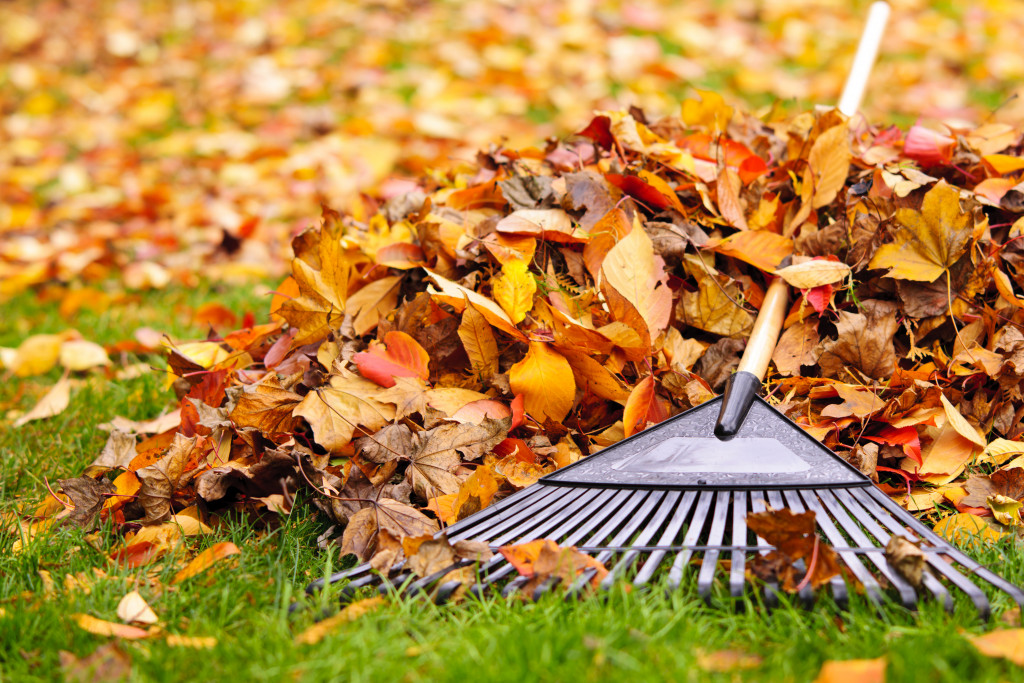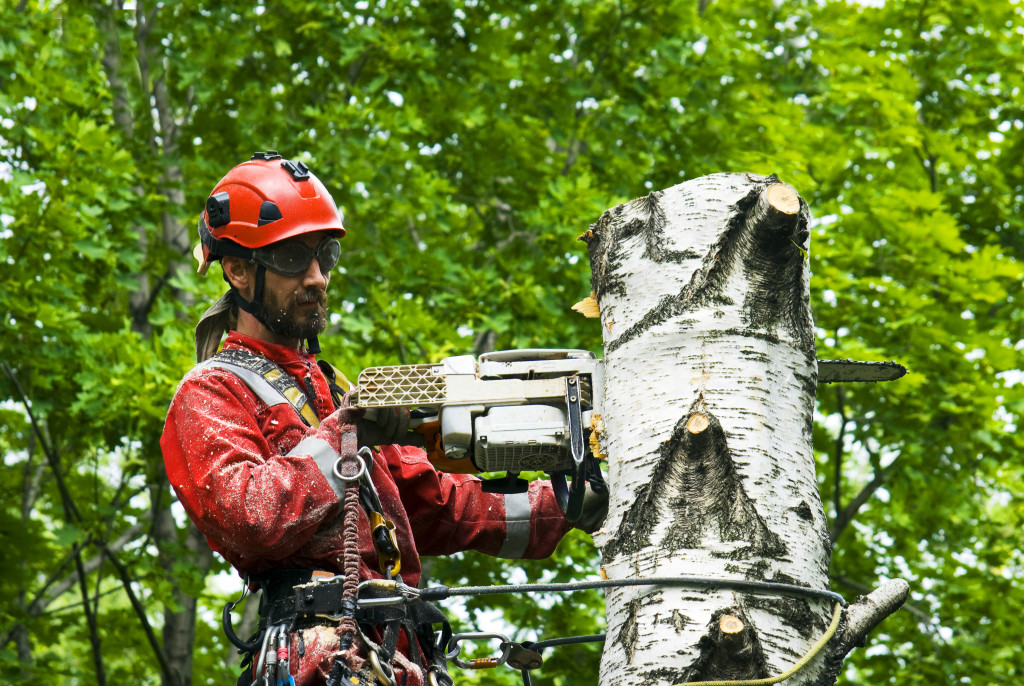• Secure your plants by anchoring them to the ground, tying strings around stems and leaves, and adding sandbags.
• Trim branches hanging over your rooftop for extra protection against falling debris.
• Cover plants with a tarp or waterproof sheet for added protection against moisture and wind.
• Make sure your drainage system is maintained, clean the gutters, check the sump pump, and have a backup power supply.
• Regularly clean up outdoor debris such as leaves, dead foliage, and twigs to reduce wildfire risk.
Being prepared for natural disasters is of the utmost importance when it comes to your outdoor space. Whether a sudden thunderstorm or a more extreme event like a hurricane or tornado, you need to be ready for any and all scenarios.
Keeping your garden and outdoor space safe from natural causes is essential for preventing property damage and keeping your family safe. Here are some tips on how to do just that.
Secure Your Plants
When bad weather strikes, the wind can wreak havoc on your garden and outdoor space. This may cause your plants and trees to be uprooted, shattered, or lost. Additionally, it can cause danger to your family and be a hazard to your home. To prevent this or to keep the damage to a minimum, here are ways to secure your plants:
Anchor Your Plants
Securely anchor your plants in the ground beforehand. This can be done by tying strings around the leaves and stems of taller plants and trees to keep them from swaying too much during a storm. For added stability, consider adding sandbags or stakes around your outdoor area.
Trim Off Trim Branches
If you have lush trees in your garden, make sure to trim away any branches that hang over your home’s roof. This way, if a storm hits, you can be assured that no large branches will come crashing down on your home or family. You can hire a tree surgeon to remove dead and weak branches and prune your trees for even better prevention against any potential damage. This expert service will also help to ensure that the tree and its surroundings are safe in any weather.
Cover Up Your Plants
To ensure that your outdoor space is prepared for any weather, cover up your plants with a tarp or waterproof sheet. These sheets will help to keep any moisture out and allow your plants to stay dry during a storm. Additionally, they can also provide extra protection against wind and hail damage.

Maintain Your Home’s Drainage System
Another important factor in protecting your home from natural disasters is ensuring its drainage system is working properly. Your drainage system is responsible for carrying away excess water during a storm. To prevent any potential damage to your home, make sure to do the following:
Clean Your Gutters
Make sure gutters are regularly cleared of debris, downspouts point away from the house’s foundation, and rainwater isn’t pooling around your home’s structure. When water pools, it may cause flooding and damage to your home’s foundation.
Check Your Sump Pump
Inspect your sump pump regularly to make sure it is functioning properly. The sump pump helps to remove excess water from your home’s basement or crawl space. Be sure to have a backup power supply in case of a power outage when the storm hits. A regular inspection ensures that any water buildup in the basement or crawlspace is quickly removed before causing any serious damage.
Clean Up Your Yard Regularly

Regularly cleaning up the yard of dead foliage, leaves, twigs, and other debris will reduce the fire spreading throughout the yard during dry periods when there is an increased risk of wildfires. This will also help with pest management, as many pests find refuge in such conditions and reduce airborne allergens when left unattended for long periods. For effective cleaning, you can do the following methods:
- Use a leaf blower: Use it for large spaces, and check for any damaged or rotting trees before blowing leaves into them.
- Rake it up: A great way to collect the debris in one spot, then use a bagging system to remove it from your property.
- Mulching: An effective way of handling weeds and unwanted growth, use a mulching system to help reduce the amount of work you have to put in.
By ensuring your outdoor space is properly protected from natural disasters, you can rest assured that you and your family will be safe. Whether taking preventative measures before bad weather hits or preparing an emergency plan, following these tips can help you keep your garden and outdoor space safe in any situation.
